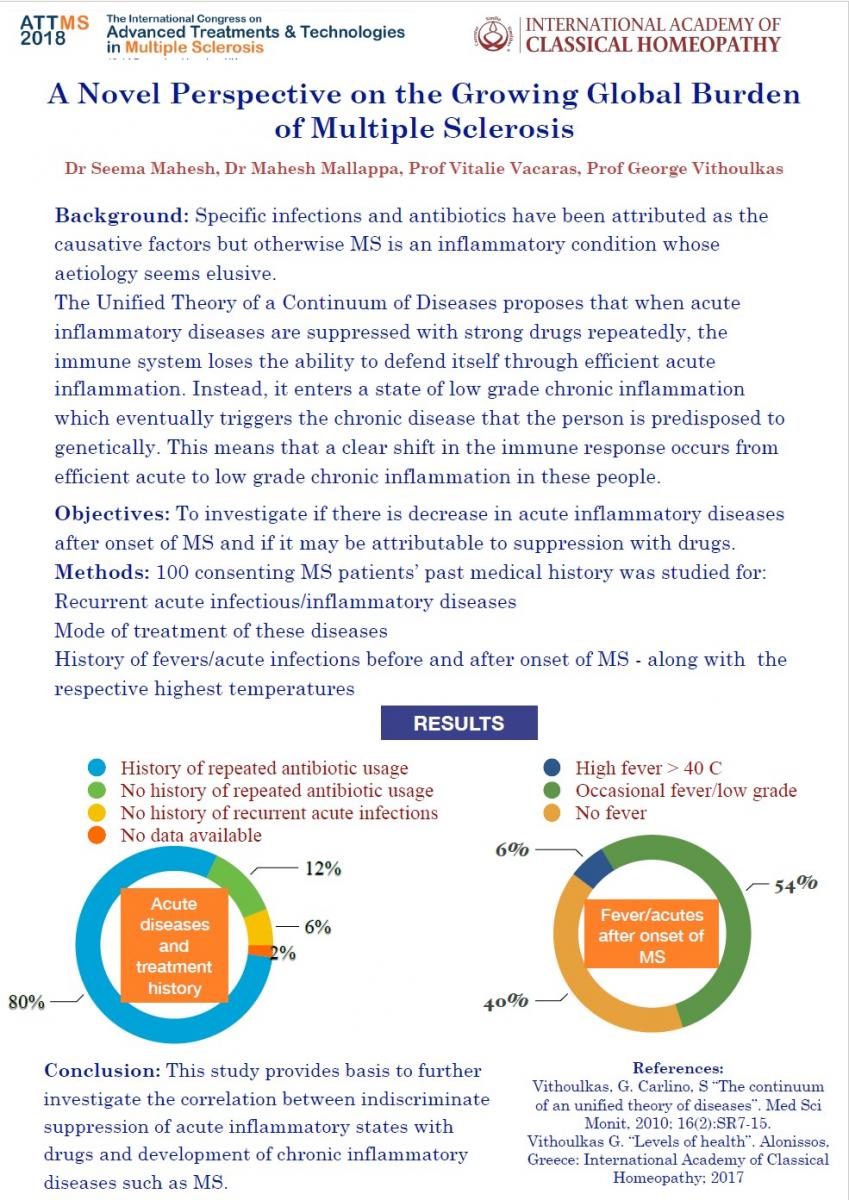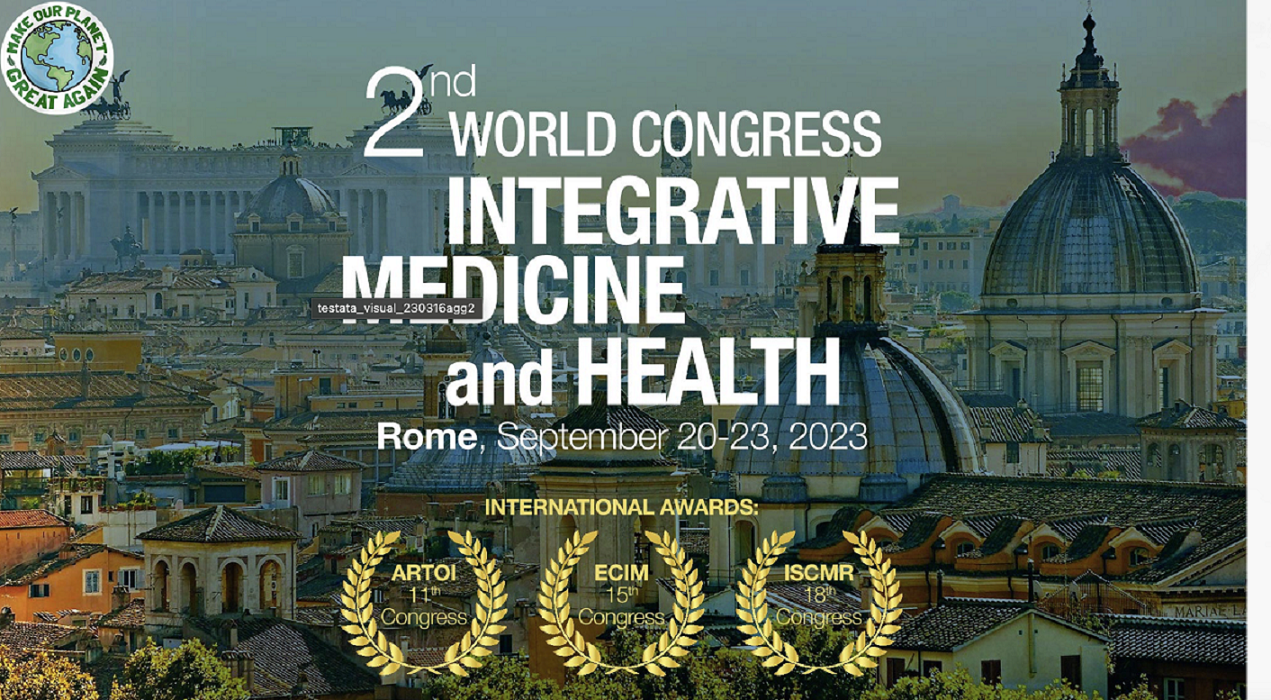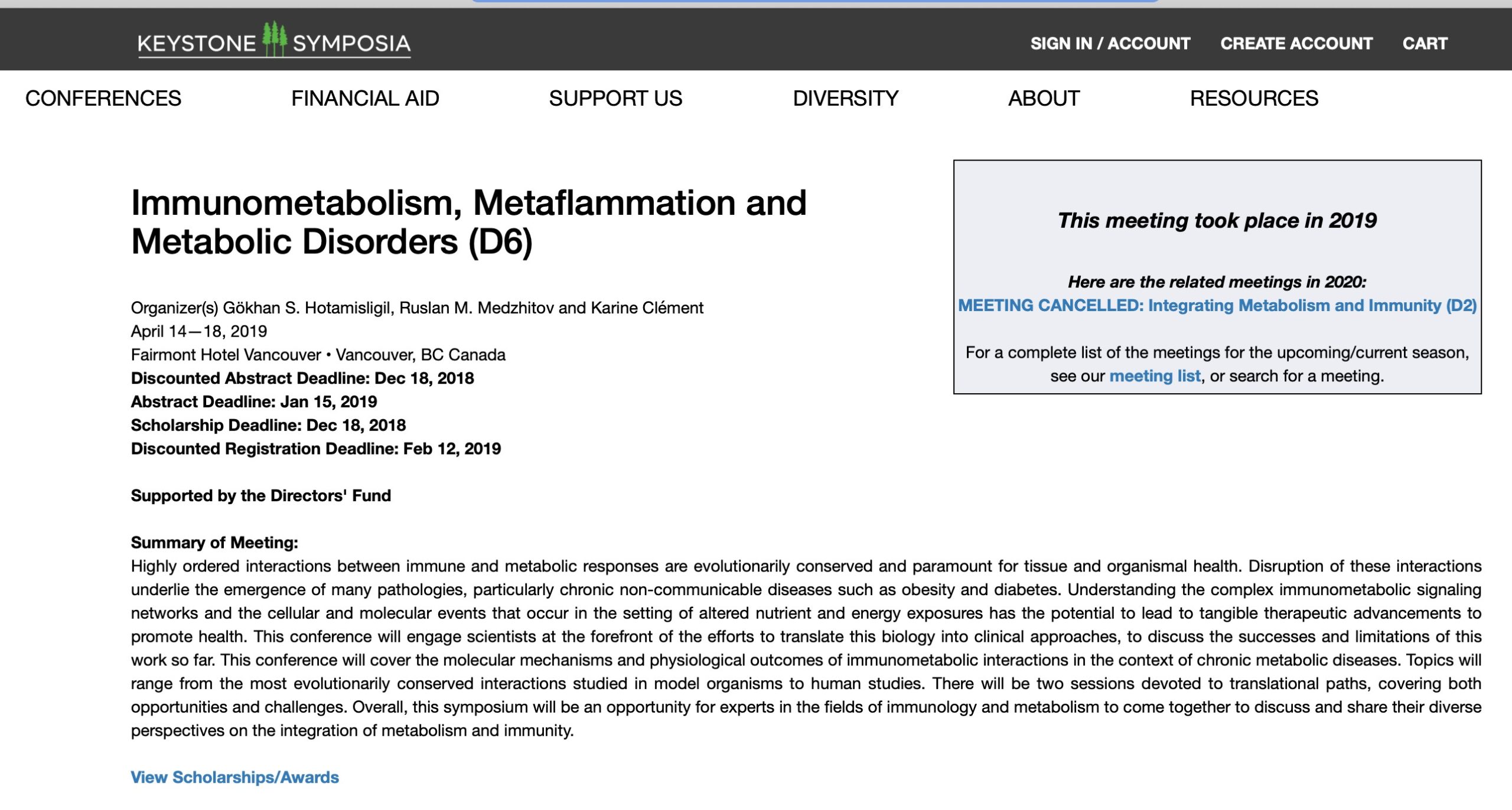A Novel Perspective on The Growing Global Burden of Multiple Sclerosis (Oral Presentation)
Dr Seema Mahesh*1, Dr Mahesh Mallappa1, Prof Vitalie Vacaras2, Prof George Vithoulkas3
*Corresponding/Presenting Author
Affiliations:
1 Centre For Classical Homeopathy, Bangalore, India
2 University of Medicine and Pharmacy, Iuliu Hatieganu, Cluj-Napoca, Romania
3 University of the Aegean International Academy of Classical Homeopathy, Alonissos, Greece 37005
Background: Affecting over 2.5 million globally, Multiple Sclerosis (MS) is one of the most disabling diseases.
Specific infections and antibiotics have been attributed as the causative factors but otherwise it is an inflammatory condition whose aetiology seems elusive.
The Unified Theory of a Continuum of Diseases proposes that when acute inflammatory diseases are suppressed with strong drugs repeatedly, the immune system loses the ability to defend itself through efficient acute inflammation.
Instead, it enters a state of low grade chronic inflammation which eventually triggers the chronic disease that the person is predisposed to genetically.
This means that a clear shift in the immune response occurs from efficient acute to low grade chronic inflammation in these people.
Objectives: To investigate if there is decrease in acute inflammatory diseases after onset of MS and if it may be attributable to suppression with drugs.
Methods: 100 consenting MS patients’ past medical history was studied for:
Recurrent acute infectious/inflammatory diseases
Mode of treatment of these diseases
History of fevers/acute infections before and after onset of MS – along with the respective highest temperatures
Results:
80 persons – history of acute infectious diseases, repeatedly treated with antibiotics
12 persons – history of recurrent acute infectious diseases, without any abuse of antibiotics
2 persons – no clarity
After onset of MS:
6 persons – high fevers of 40o C (a sign of efficient acute inflammation)
53 persons – occasional fevers but low grade.
40 persons – no fevers
Conclusion: This study provides basis to further investigate the correlation between indiscriminate suppression of acute inflammatory states with drugs and development of chronic inflammatory diseases such as MS.













